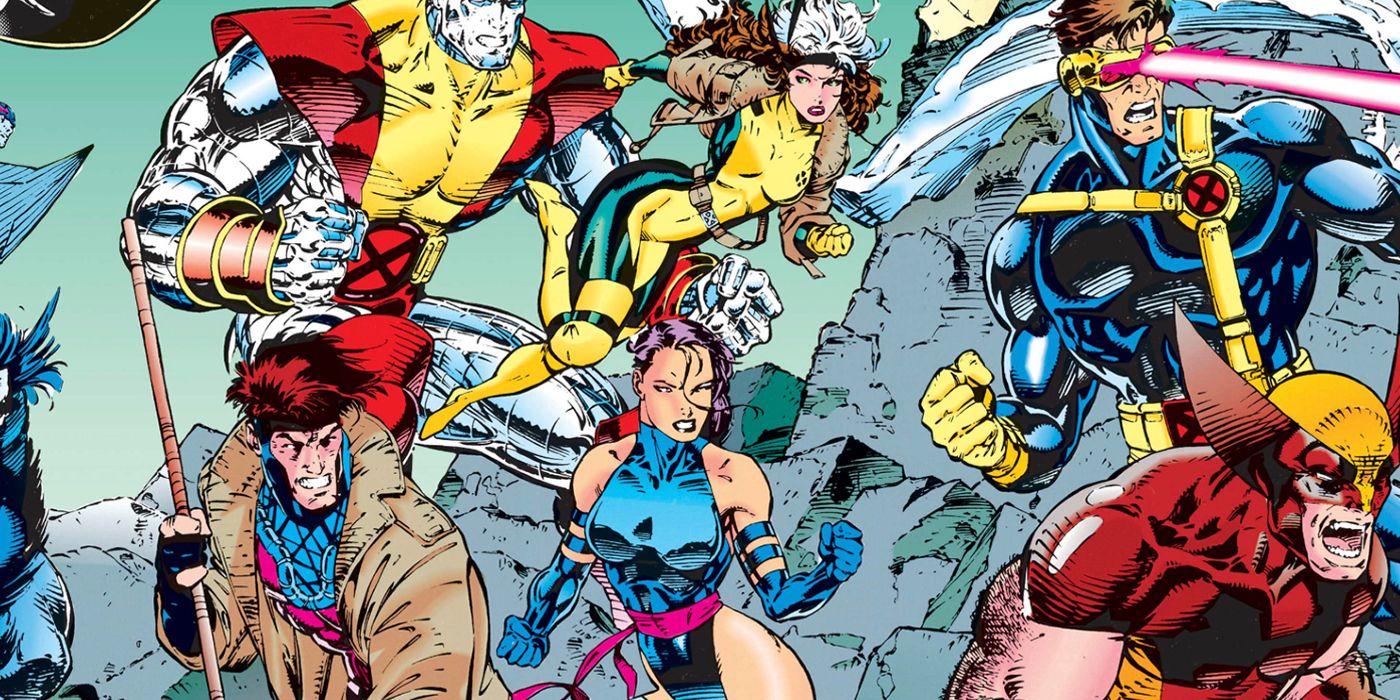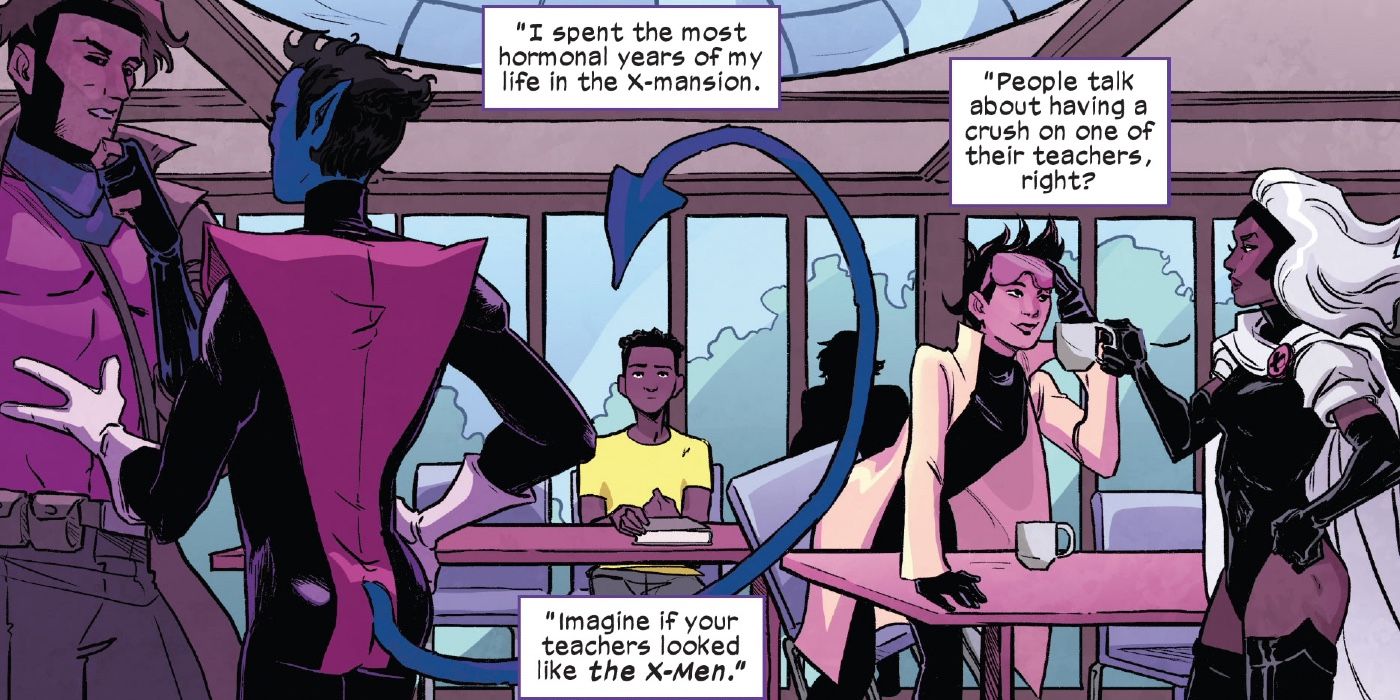Spoilers for "Colossus," in Marvel Voices: Pride #1 ahead!
A common criticism of X-Men comics in the 1990s was the over-sexualization of the characters, and Marvel calls this trope out in a new story in Marvel Voices: Pride. The one-shot, released in conjunction with Pride Month, stars a number of LGBTQIA+ characters in stories by some of today’s top creators. One story in particular calls out an unfortunate aspect of older X-Men stories. The issue is on sale now in print and digital.
In the late 1980s/early 1990s, a number of artists, including Jim Lee and Marc Silvestri, injected new artistic life into the X-Men franchise. The poses were dynamic, almost seeming to leap off the page. Another quality of the art was the over-sexualization of the characters, especially the women. There were valid criticisms that the art did not represent the female body—the breasts were too big, the waists too small. The costumes, especially Psylocke’s, were skimpy, showing a great deal of skin. Likewise, the men were reimagined with six-pack abs and rippling muscles, but for the most part, the attention was on the women. This trend became linked with the excess of the 90s, and now Marvel pokes fun at it in a brand-new story.
Titled “Colossus,” the story is told from the perspective of Prodigy, who was once a student at Xavier’s school. While out on a date, Prodigy recounts his time as a student, saying he spent his “most hormonal” years there. Prodigy recounts why this was a problem, saying that most teenagers are so hormonal that some crush on their teachers. But being hot for teacher at the X-Mansion added another layer as all of the students' teachers would have been physical specimens. The shot then cuts away to Prodigy sitting in a classroom with several X-Men hanging around—all in the garb they wore in the 1990s. Prodigy asks his date to imagine trying to pay attention when your instructor is Emma Frost.
The scene is humorous and reminds readers of an older chapter in the X-Men’s history, maybe one best forgotten, but it also serves to help Prodigy come to terms with his sexuality. Prodigy is bisexual, and for much of his time at Xavier’s, felt confused about his sexuality. But seeing Colossus, in his costume but not in his metallic form, helped Prodigy feel more comfortable in his own skin, setting him down the path to living a better life.
The X-Men were criticized in the 1990s for being over-sexualized, and Marvel calls this out in “Colossus,” written by Kieron Gillen with art by Jen Hickman and colors by Brittany Peer, appearing in Marvel Voices: Pride.


